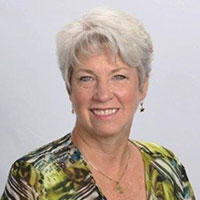National Adult Protective Services Association
"Without her I’d be lost…."

In the 1960s, groups working with an aging population began to recognize the need to provide service delivery systems for the elderly who were in need of protection. Federal legislation in 1974 allowed states to use block grants to protect vulnerable adults as well as children, and subsequent laws enabled the mandatory reporting of elder abuse affecting not only older Americans but also the physically and intellectually disabled and other vulnerable adults.
The National Adult Protective Services Association (NAPSA) was formed in 1989, and today is a 501c3 nonprofit with members in all 50 states. NAPSA provides Adult Protective Services (APS) programs a forum for sharing information, solving problems, and improving the quality of services for victims of mistreatment and financial exploitation. NAPSA strengthens the capacity of APS at the national, state, and local levels. It informs APS workers and administrators, professionals in aging and disabilities networks, students in social services, and others committed to protecting our most vulnerable citizens. Networking, training, research, and news inform these professionals about the latest in practice methods and policy developments.
When incoming Board President Lori Delagrammatikas was named Executive Director, she immediately faced serious challenges of having to raise more funds while cutting expenses. One of her first actions was to ask YPTC Associate Jennifer Hrebik how to save money on accounting costs. “We worked together to come up with a plan where Jennifer trained a person in our office do our basic bookkeeping, so Jennifer could focus her time on those things where we needed an expert. I mean, how many people would work with you to reduce their billable time?” Delagrammatikas recalls.
Hrebik helped NAPSA work through employment regulations and tax requirements in several states where employees work remotely, apply for federal Payroll Protection Plan loans, and comply with multiple nonprofit organizational requirements.
“We rely on her heavily to make sure we’re in compliance. She’s so competent. She even helps us understand our insurance. Having somebody I can count on to say, ‘Lori, you need to think this through,’ is really important for me.
“Any time I’ve asked her to do something she’s immediately responsive. She explains things in plain English. I don’t have an accounting background; I’m a social worker,” says Delagrammatikas. “Without her I’d be lost.”






